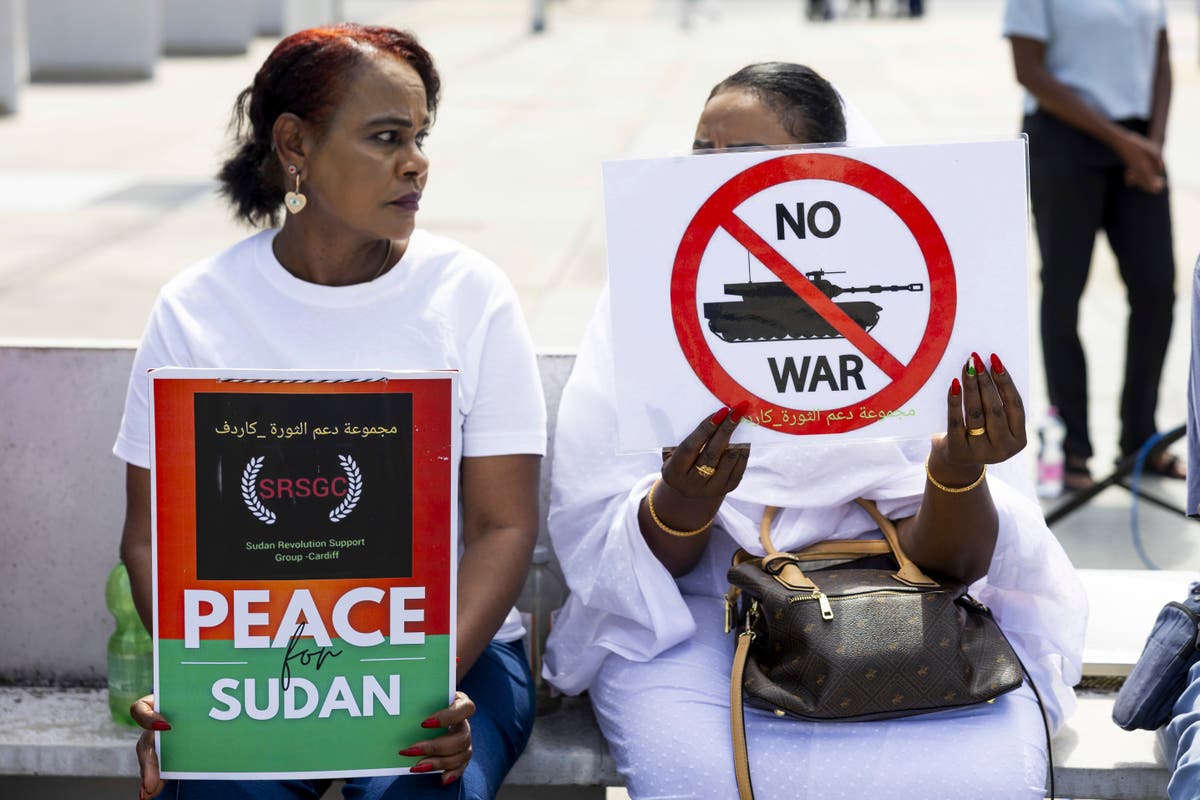The first day of U.S.-led peace talks aimed at finding a solution to Sudan’s brutal conflict concluded Wednesday in Geneva with the country’s military absent and the other warring party’s participation unclear.
The talks come as the war-wrecked country faces one of the world’s worst humanitarian crises. The country’s military did not send representatives and it did not appear that delegates from the other warring party, the Rapid Support Forces, attended Wednesday’s session. Diplomats from Saudi Arabia, Egypt, The United Arab Emirates, the Africa Union and the United Nations were at the talks.
The northeastern African nation plunged into chaos in April last year when tensions between the military and the RSF turned into open fighting in the capital, Khartoum, before spreading across the country.
“We are hard at work in Switzerland on the first day of intensive diplomatic efforts for Sudan to support humanitarian access, cessation of hostilities,” a joint statement on behalf of the United States, Switzerland, the Kingdom of Saudi Arabia, Egypt, the United Arab Emirates, the African Union, and the United Nations read.
The statement was posted on X by U.S. Special Envoy for Sudan Tom Perriello, along with photos of the day’s discussions. No RSF representatives appeared in the photos, but the RSF said Tuesday that the paramilitary force’s delegation had arrived in Switzerland.
A spokesman for the RSF declined to comment on the talks or the presence of the group’s delegation at Wednesday’s session.
The Rapid Support Forces were formed from Janjaweed fighters created under former Sudanese President Omar al-Bashir, who ruled the country for three decades before being overthrown during a popular uprising in 2019. He is wanted by the International Criminal Court on charges of genocide and other crimes during the conflict in Darfur in the 2000s.
Meanwhile, officials continued to call for the country’s military to join the negotiations.
“Obviously, we would want to see all sides participate so that the talks can be as successful as possible,” U.N. deputy spokesman Farhan Haq told reporters.
But Sudan’s military leader, Gen. Abdel-Fattah Burhan, said Tuesday the military would not talk about a cease-fire until the RSF stopped seizing civilian homes. He blamed the RSF for “falsely claiming peace,” while still committing acts of war.
Burhan survived a drone attack that killed five people in late July on an army graduation ceremony he was attending in the country’s east, though the RSF did not claim responsibility.
“There is no peace while the rebel militia occupies our homes, cities and villages and besieges them,” said Burham in a speech Tuesday to mark the national military’s founding. “There is no cessation of hostilities without the withdrawal and exit of up to the last militia from the cities and villages that they have plundered and colonized.”
The conflict has killed thousands of people and pushed many into starvation. Its atrocities include mass rape and ethnically motivated killings that amount to war crimes and crimes against humanity, according to the U.N. and international rights groups.
Sudan’s war has created the world’s largest displacement crisis. More than 10.7 million people have been forced to flee their homes since fighting began, according to the International Organization for Migration. Over 2 million of those fled to neighboring countries.
Last month, global experts confirmed that starvation at a massive camp for displaced people in Darfur has grown into famine. And about 25.6 million people — more than half of Sudan’s population — will face acute hunger, the experts from the Famine Review Committee warned.

